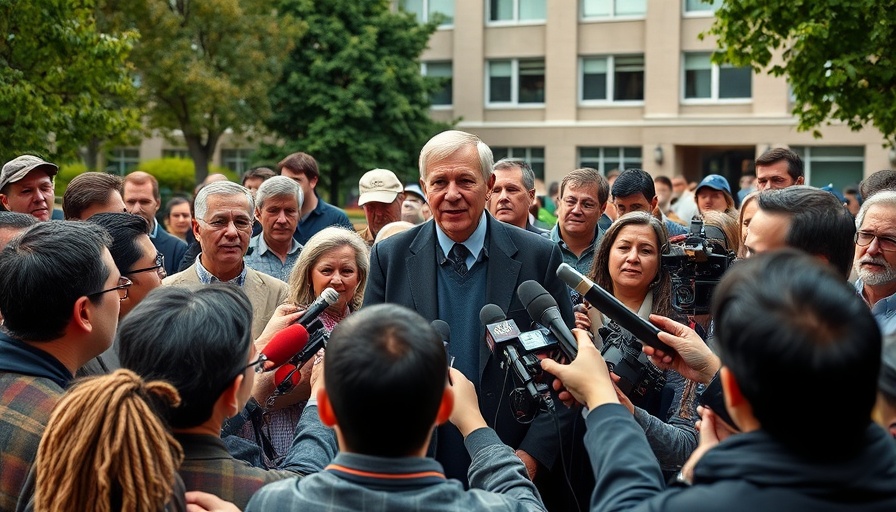
Understanding the Future: Lessons from August 30, 2025
As we progress further into the 21st century, the implications of technological advancements and societal shifts continue to unfold in complex ways. The video titled 30 August 2025 presents a captivating glimpse into future scenarios that are poised to shape our world, particularly emphasizing the African continent. This exploration raises crucial inquiries about where we are heading and what factors will be most impactful.
In 30 August 2025, the discussion highlights future scenarios for Africa, leading us to delve deeper into its implications and potential outcomes.
Historical Context and Background
To grasp the significance of potential futures, it's essential to consider the historical narratives that have preceded them. Africa has often been viewed through a lens of challenges—colonization, economic instability, and political unrest. Yet, these very experiences have birthed resilience and ingenuity among its populations. For instance, innovations in technology in countries like Kenya and Nigeria have led to unprecedented growth in sectors like fintech and agriculture. By drawing lessons from historical resilience, African leaders can better navigate the complexities of future opportunities and challenges.
Future Predictions: Insights from Current Trends
In considering the video’s insights, we must look at prevailing trends that hint at what the future may hold for the African continent. With the rapid rise of technology and AI, industries across Africa are poised for transformation. However, this change will not come without its risks. Africa's youth, who make up a significant portion of the population, are increasingly digital-savvy and eager to engage in these shifts. The challenge lies in ensuring equitable access to these advancements to avert widening socio-economic disparities.
Relevance to Current Events and Issues Facing Africa
The discussions surrounding the envisioned future align closely with ongoing events in Africa. From political elections to climate change negotiations, it’s evident that the continent is at a crossroads. As various nations face internal turmoil or external pressures, how leaders respond could set the stage for future developments. A recent rise in youth-led movements across the continent showcases the power of collective action in shaping political landscapes. Understanding these dynamics is fundamental for forecasting how these movements will influence Africa’s trajectory.
Counterarguments and Diverse Perspectives on the Future
While optimism about Africa's future is prevalent, it is crucial to entertain diverse perspectives that challenge prevailing narratives. Critics argue that without robust infrastructure and policy frameworks, the benefits of technology will remain inaccessible to many. This divergence underscores the importance of inclusive dialogue among stakeholders, ensuring that all voices are heard in crafting the continent’s vision moving forward. Failure to address these concerns could result in technology serving as a further hindrance rather than a catalyst for progress.
Decisions You Can Make with This Information
As we contemplate the insights garnered from the 30 August 2025 video, readers can make informed decisions that shape their engagement with future developments. Whether it’s through advocacy, investment in local initiatives, or supporting policies that promote equality in technology access, individual actions can contribute to broader societal progress. Engaging with community projects or attending forums addressing these topics can empower citizens to take an active role in their collective futures.
In summary, analyzing the future through the lens of historical resilience, current events, and diverse perspectives is not merely an academic exercise. Rather, it is an essential endeavor that prepares individuals and communities for the complexities of a rapidly evolving world. The implications of these discussions are profound, as they invite us all to envision a future not only rich in potential but equitable in its distribution. To explore this further, readers are encouraged to engage with local initiatives and contribute to the dialogue shaping Africa's next chapters.
 Add Row
Add Row  Add
Add 


Write A Comment